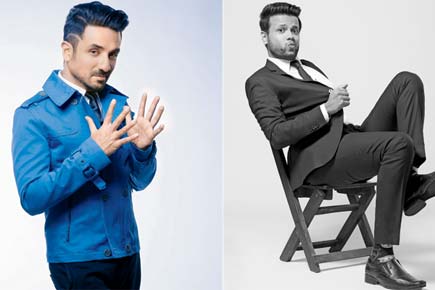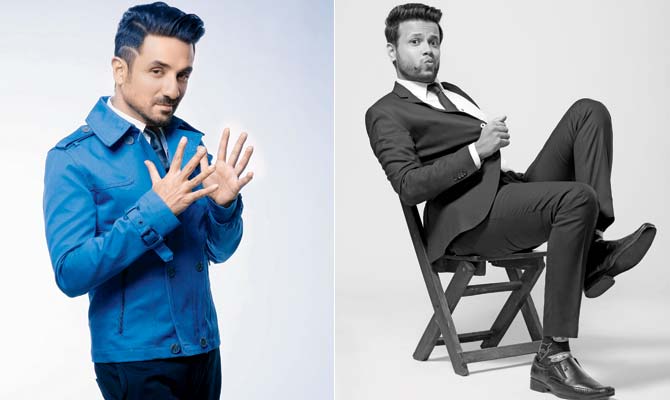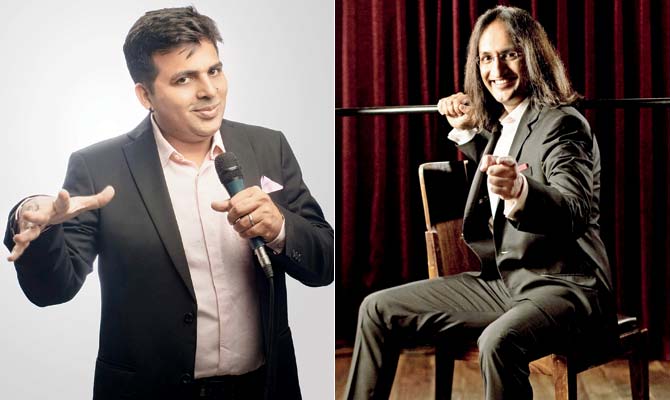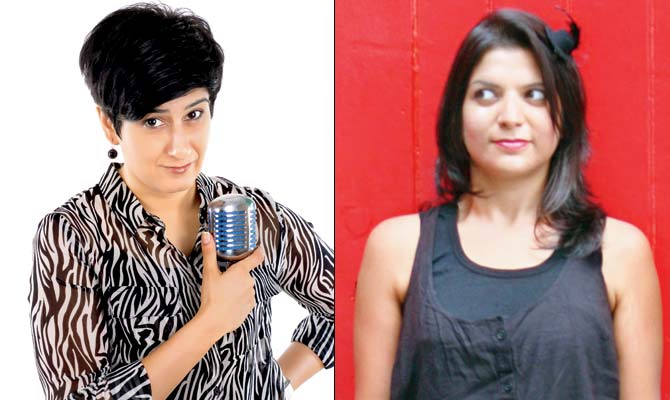From either side of the Atlantic to Southeast Asia, Indian stand-up comedians are sending ripples of laughter around. Six global faces spill the beans on what makes their brand of humour click

 Vir Das and Sapan Verma
Vir Das and Sapan Verma
ADVERTISEMENT
"Cutting-edge talents, exciting diversity, and original and creative voices... certain to shake up, invigorate, and power new films, TV shows, and more" is how the US magazine, Variety, sees the comedians it has included in its coveted Top Ten Comics to Watch for list released recently. Our takeaway from the news? Vir Das became the first Indian to feature on the list, making it to the No. 3 spot. The actor-comedian, who has been touring the globe extensively, has gained further international popularity with his hit Netflix show, Abroad Understanding.

Amit Tandon and Papa CJ
Das is not alone. Indian stand-up comedians have announced their arrival on the world stage, and if their sold-out shows are anything to go by, they are here to stay. Aditi Mittal bagged her show, A Beginner's Guide to India, on BBC's Radio 4 last year. That the British loved her humour explains why Mittal is a regular name in the UK comedy circuit, where, this August she will make her Edinburgh debut at a popular comedy festival. When we try to connect with the Delhi-based comedian, Papa CJ, we realise he is in Budapest for a show, and will soon be travelling again for the Stockholm Cultural Festival, where he has been specially invited by the Ambassador of India to Sweden. Amit Tandon, known for his clean comedy, just wrapped up a show in Auckland, and will be back for an Aussie tour in July.

Neeti Palta and Aditi Mittal
LOL with the world
What does it take for a comedian to make a foray into the international scene? "Some comics make their debut with Asia-themed festivals abroad, where they may perform as part of a group show," Mittal explains. In the case of Tandon, it was his videos, which reached audiences abroad, creating a demand for him to perform in person.
CJ, on the other hand, had already done 700 shows in the UK before moving back to India, so performing abroad came naturally. "You may do a group show for the first time, but if a producer notices you, it opens many doors," shares Neeti Palta, who is a known face in Singapore, Malaysia and Australia.
With a strong presence of Indian diaspora across the globe, the target audience for comics is an interesting terrain that each approaches uniquely. "If I am only performing for Indians in the audience, it's not really an international show," says CJ, who researches the history, politics and current affairs of the country he is visiting, and makes it a point to talk to locals before the big night. "I try to bring an outsider's perspective, which usually strikes a chord," he explains. "For instance, Singapore has a law against urinating in the elevator. The question I put to the audience was why there was a need to even come up with such a law!"
Sapan Verma of East India Comedy sees his audience as a mix of both. "If you promote it as a desi show, you will get mostly Indian crowds. But if you perform at a comedy club with other international artistes, it'll be a mixed bag," he says. "If it's an Indian crowd, I do a few lines in Hindi. The topics I choose are also India-centric. And they love it. They want to be in touch with India and all things Indian. With an international audience, I try to write a few jokes about the country I'm in." For her radio show, which was for a purely British audience, Mittal chose to break the ice with her introduction that ended with "I know you are thinking...this is another job given to an immigrant who's doing it for cheaper." Tandon, on the other hand, creates a mini-India wherever he goes as his primary audience is Indians settled abroad.
Culture shock
So, how do comics ensure that they don't offend people when the cultures are so different? "It's trial and error. You can never predict what happens at a show. But usually audiences abroad are very understanding," reveals Verma.
Palta shares that distributing flyers for one's show at a comedy festival abroad is common. "But when Indian audiences, who know you are a popular name back home, see you do that, they think it's a loss of dignity!" she laughs. "That said, while talking about India abroad, I never trash it."
Mittal recalls how her joke about the Queen was met with relative silence in the UK. "You know it's only downhill from there," she says. "But then you recover and get on with the act. This job prepares you for failure more than anything else."
Money talk
Bagging a foreign deal does not always result in laughing one's way to the bank. Being part of a festival is largely about exposure. "Festivals are a lot of fun, with no money. And corporate performances pay you well but take away all the fun from the process," says Palta. "Getting a performance visa costs a lot of money because the producer has to prove that no other person can do the job better than you," adds Mittal.
So, has the desi brand of humour finally arrived on the global stage? "Some performers break through, while some don't," admits Das. "Ultimately, your nationality stops making a difference."
 Subscribe today by clicking the link and stay updated with the latest news!" Click here!
Subscribe today by clicking the link and stay updated with the latest news!" Click here!






